Hey there! Sometimes, life throws us curveballs that make it tough to keep up with our commitments. If you've ever left a task unfinished, you know how important it is to address it promptly and sincerely. In this article, we'll explore a simple yet effective letter template to help you apologize for any incomplete task with grace. So, let's dive in and discover how to mend those gaps together!

Clear Acknowledgment of the Incomplete Task
A clear acknowledgment of the incomplete task emphasizes responsibility and understanding. In a professional setting, acknowledging the specific task, such as "the quarterly financial report due on October 15, 2023," establishes clarity. Expressing recognition of the impact, such as the delay affecting team productivity or project timelines, underlines accountability. Noting any specific reasons, like unforeseen circumstances or resource limitations, can provide context. Lastly, outlining a commitment to rectify the situation by stating a new completion date, such as "I will ensure the report is completed by October 31, 2023," reinforces dedication to improvement and accountability.
Sincere Apology and Responsibility
Taking responsibility for an incomplete task reflects a commitment to professionalism and accountability. An incomplete task not only affects personal credibility but can also have repercussions on team morale and project timelines, especially in fast-paced environments. Recognizing the impact of this oversight is essential. A sincere apology should directly address the parties affected, expressing regret for any inconvenience caused. Providing context for the situation--whether it involves unforeseen circumstances or miscommunication--is important but should not serve as an excuse. Proposing a corrective action plan, which includes specific steps to complete the task and a timeline for resolution, demonstrates commitment to rectifying the situation and restoring trust. Engaging in open communication shows respect for the needs of others involved and highlights a willingness to learn and improve.
Explanation of Circumstances
Project delays can arise from unforeseen circumstances, impacting task completion timelines. An unexpected software glitch, such as a bug in the code that affects functionality, may require additional debugging time. Resource availability can also play a significant role; for instance, a critical team member could fall ill, disrupting the workflow. Furthermore, external factors like supply chain issues may delay necessary components, leading to setbacks. Project timelines may require adjustment, reinforcing the importance of communication and transparency in keeping stakeholders informed.
Proactive Steps for Resolution
In the world of project management, acknowledging incomplete tasks is crucial for maintaining professional relationships. When an individual fails to complete a task, such as a report due on October 15, 2023, it's important to communicate openly. Expressing regret for the oversight while outlining proactive steps for resolution adds accountability. For instance, proposing a revised timeline could help regain trust; suggesting completion by October 22, 2023, allows time for thorough work. Additionally, offering to provide regular updates to stakeholders, such as team members or managers, ensures transparency. Assessing the reasons behind the delay, like unexpected workload or resource constraints, can also inform future planning. Implementing strategies to prioritize tasks, such as a time-blocking method, could prevent similar occurrences. Ultimately, making an effort to restore confidence shows commitment to both personal accountability and professional excellence.
Assurance of Improved Future Performance
Apologizing for an incomplete task can foster better communication and accountability. An effective approach involves recognizing the shortfall openly and providing assurance for future improvements. Establishing a clear plan, such as a timeline or specific steps, indicates commitment to enhance productivity. Ensuring access to necessary resources, like training or support, can further bolster performance. Addressing the team or individual in a considerate manner promotes a positive atmosphere for overcoming challenges together. Ultimately, this encourages a collaborative spirit moving forward, reinforcing trust and reliability in future endeavors.

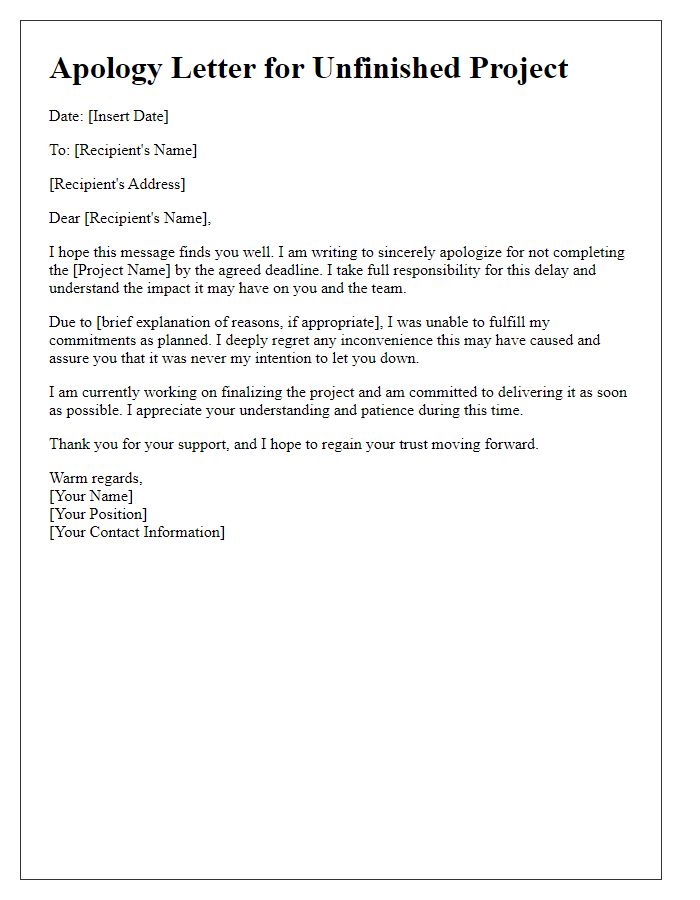
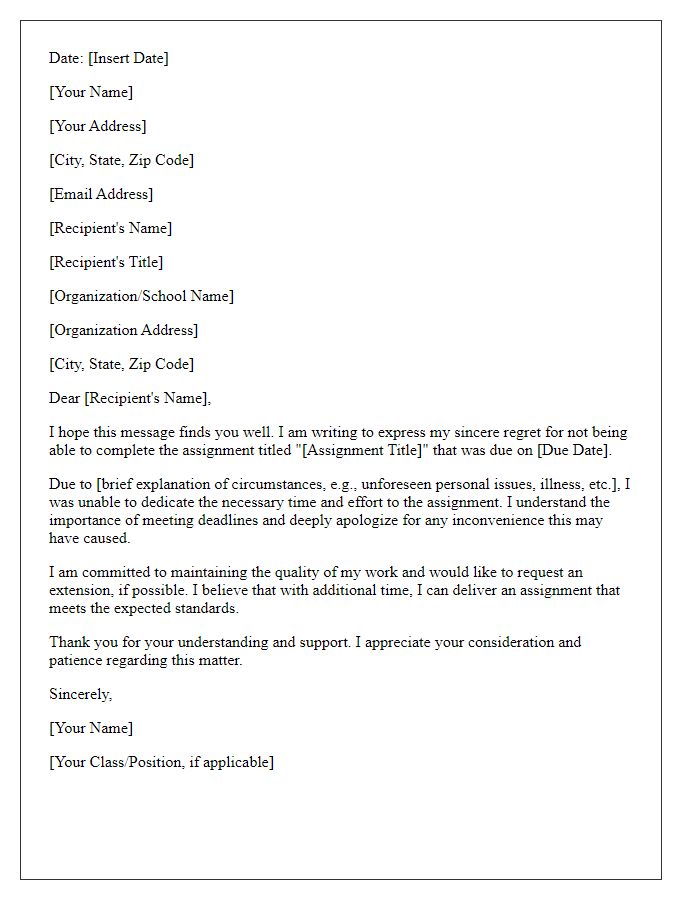
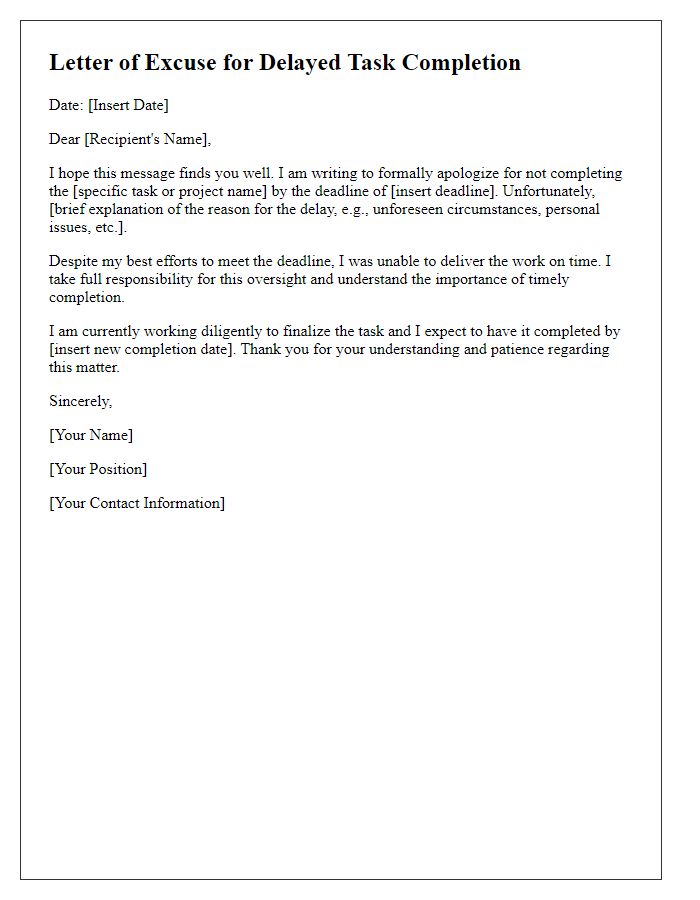
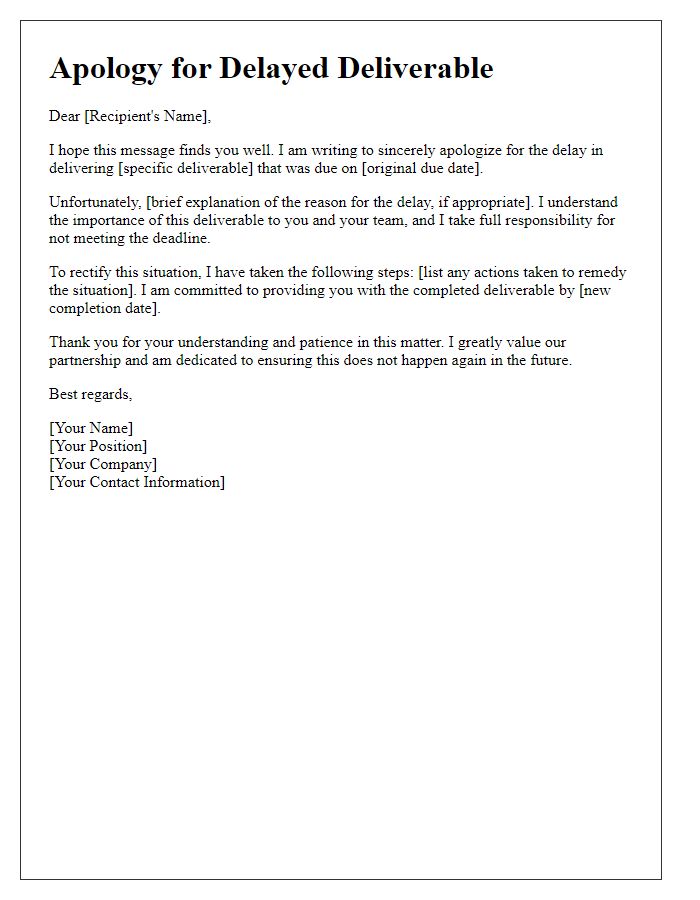
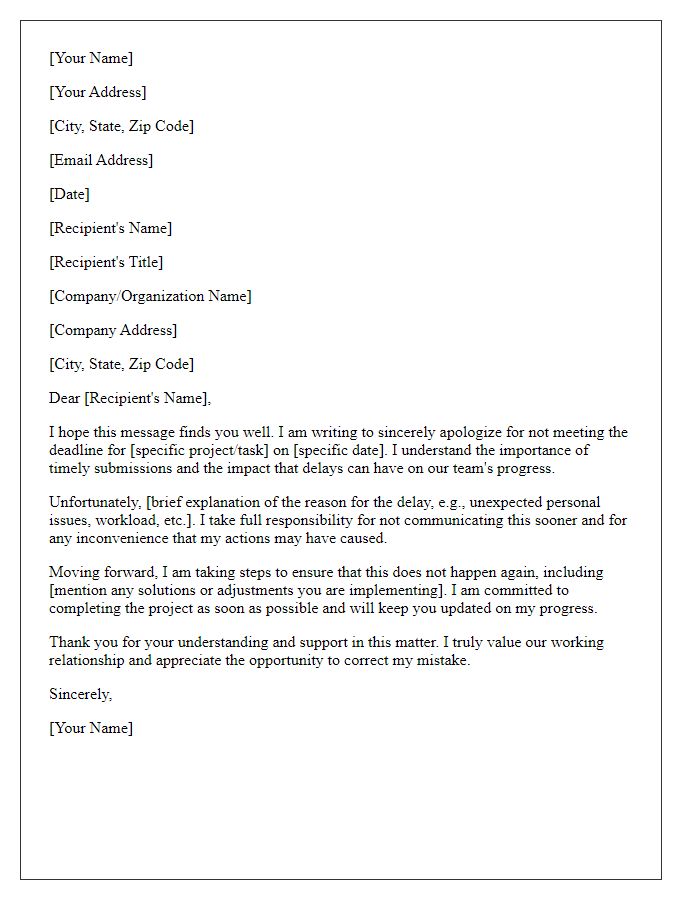
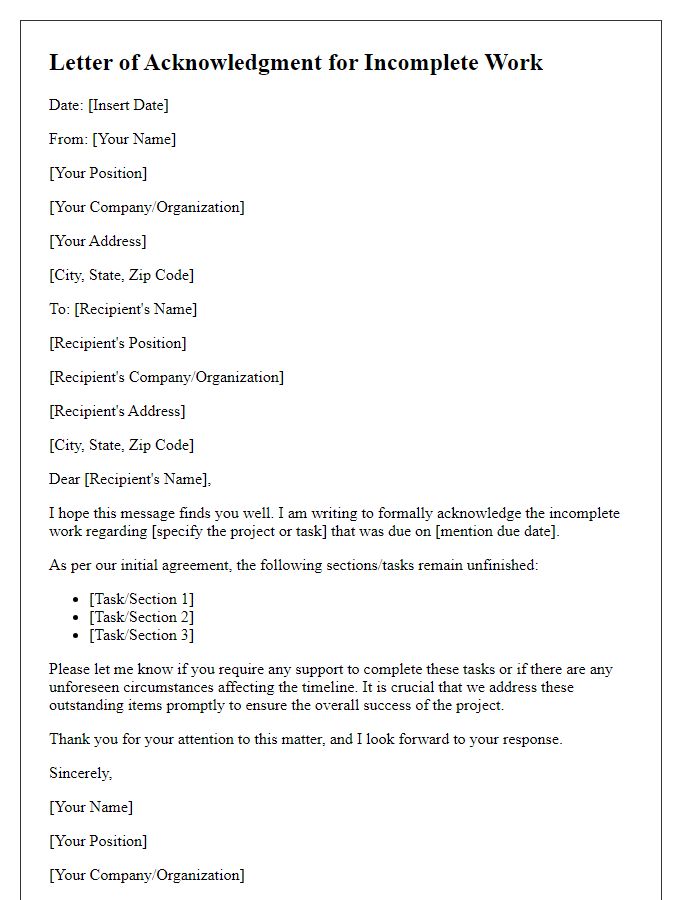
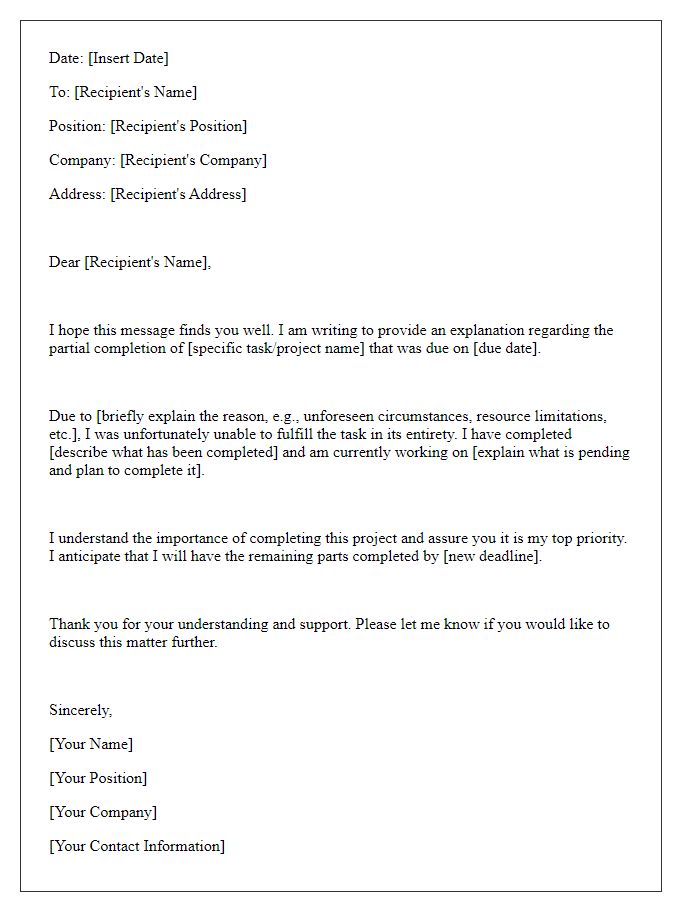
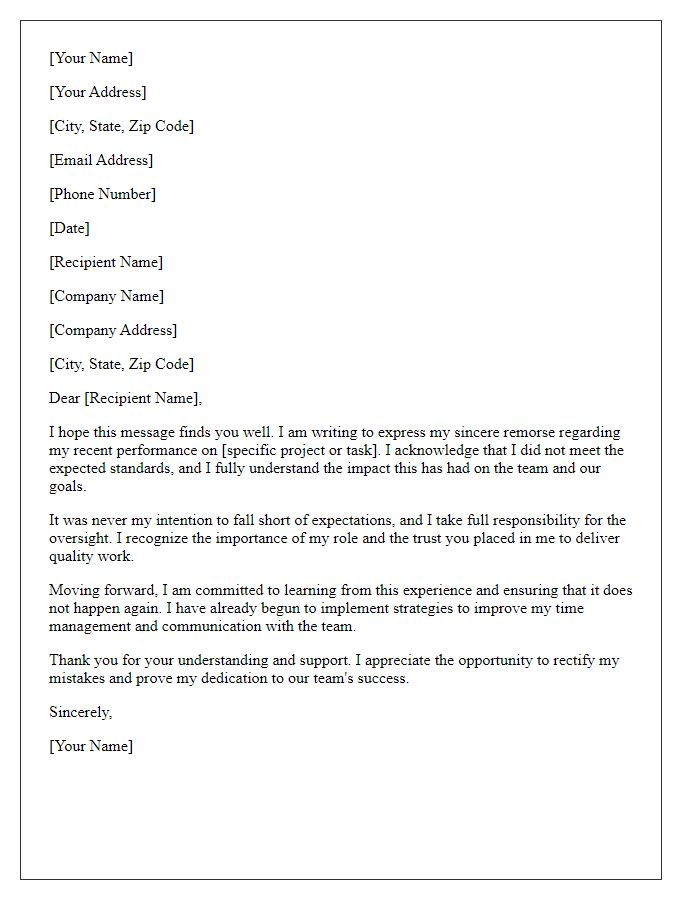
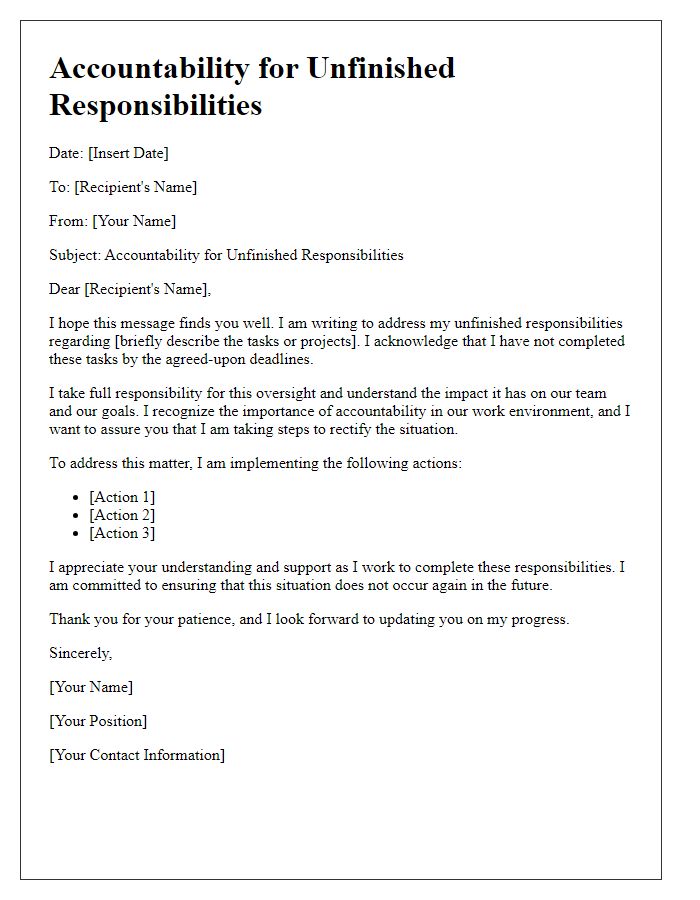
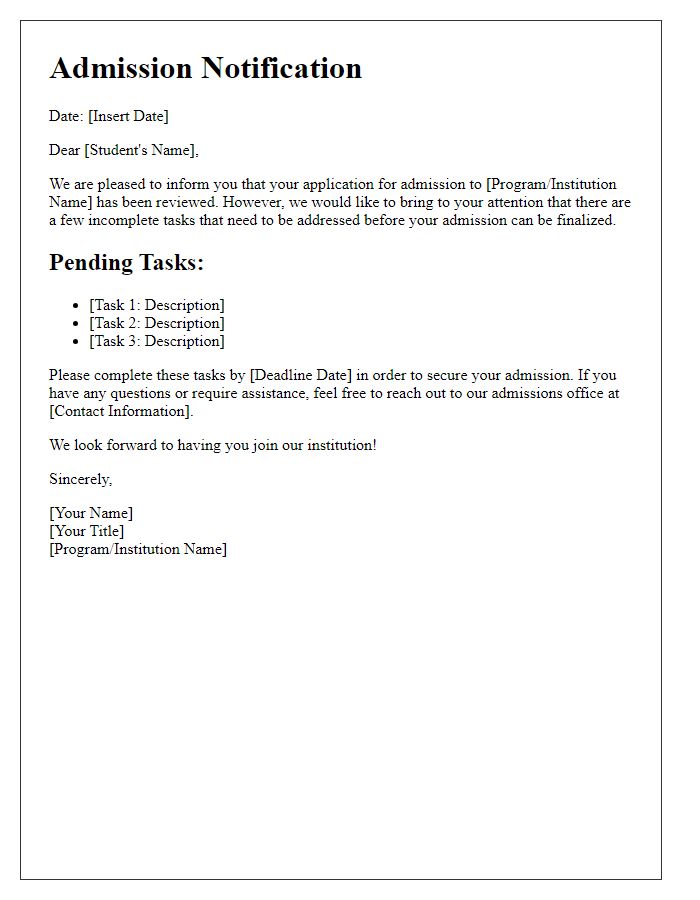


Comments